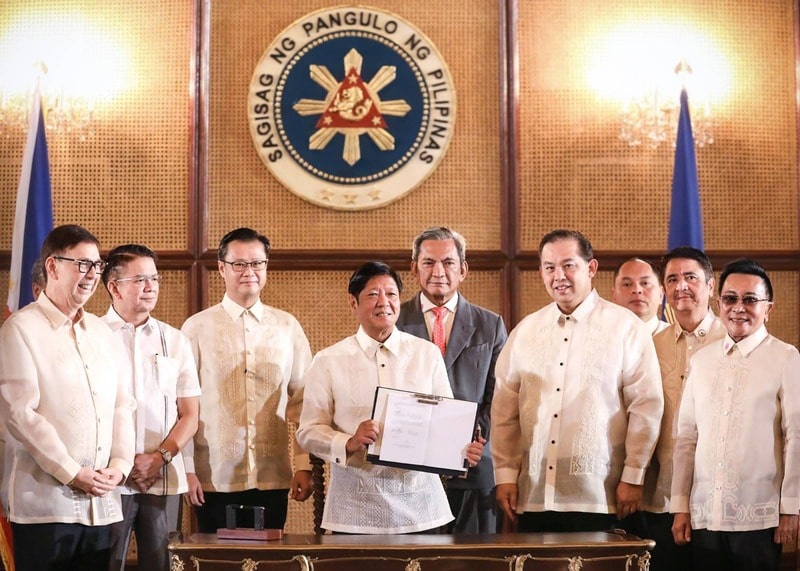“We are not imposing new taxes.”
This is how President Ferdinand R. Marcos Jr. explained the new “Value-Added Tax on Digital Services Law” on Wednesday.
The law aims to create a fair digital market in the Philippines.

During the signing ceremony at Malacañan Palace, President Marcos said the law addresses the changes in the digital world.
“With this law, if you are making profits in the Philippine market, your tax responsibilities should be clear,” he said.
“But make no mistake, we are not imposing new taxes. We are just making it easier for the Bureau of Internal Revenue (BIR) to collect value-added tax on digital services,” he added.
The law strengthens the BIR’s authority to collect VAT on digital services like digital media, music, video games, video-on-demand, and ads. It includes platforms like Netflix, Spotify, Amazon, and Lazada.
“Local businesses and international digital platforms will now compete equally. If you benefit from our digital economy, you should also contribute to its growth,” President Marcos said.
“Whether you are a small start-up or a global tech giant, if you make money here, you are part of our community and share its responsibilities,” he added.
The law exempts digital educational services, such as online courses and webinars from private institutions, and subscription-based services for educational institutions recognized by government agencies like the Department of Education (DepEd) and the Commission on Higher Education (CHED).
The BIR Commissioner can suspend the operations of non-compliant taxpayers and block their digital services.
The law will be implemented by the Department of Information and Communications Technology (DICT) through the National Telecommunications Commission (NTC).
The Department of Finance (DOF), with recommendations from the BIR and in coordination with the DICT and NTC, will issue the implementing rules and regulations (IRR) within 90 days of the law’s effectivity.




![eGov PH Super App: It’s Official! [Download now!] eGov PH Super App: It’s Official! [Download now!]](https://www.techglimpse.ph/wp-content/uploads/2023/06/eGov-PH-Super-App-150x150.jpg)

